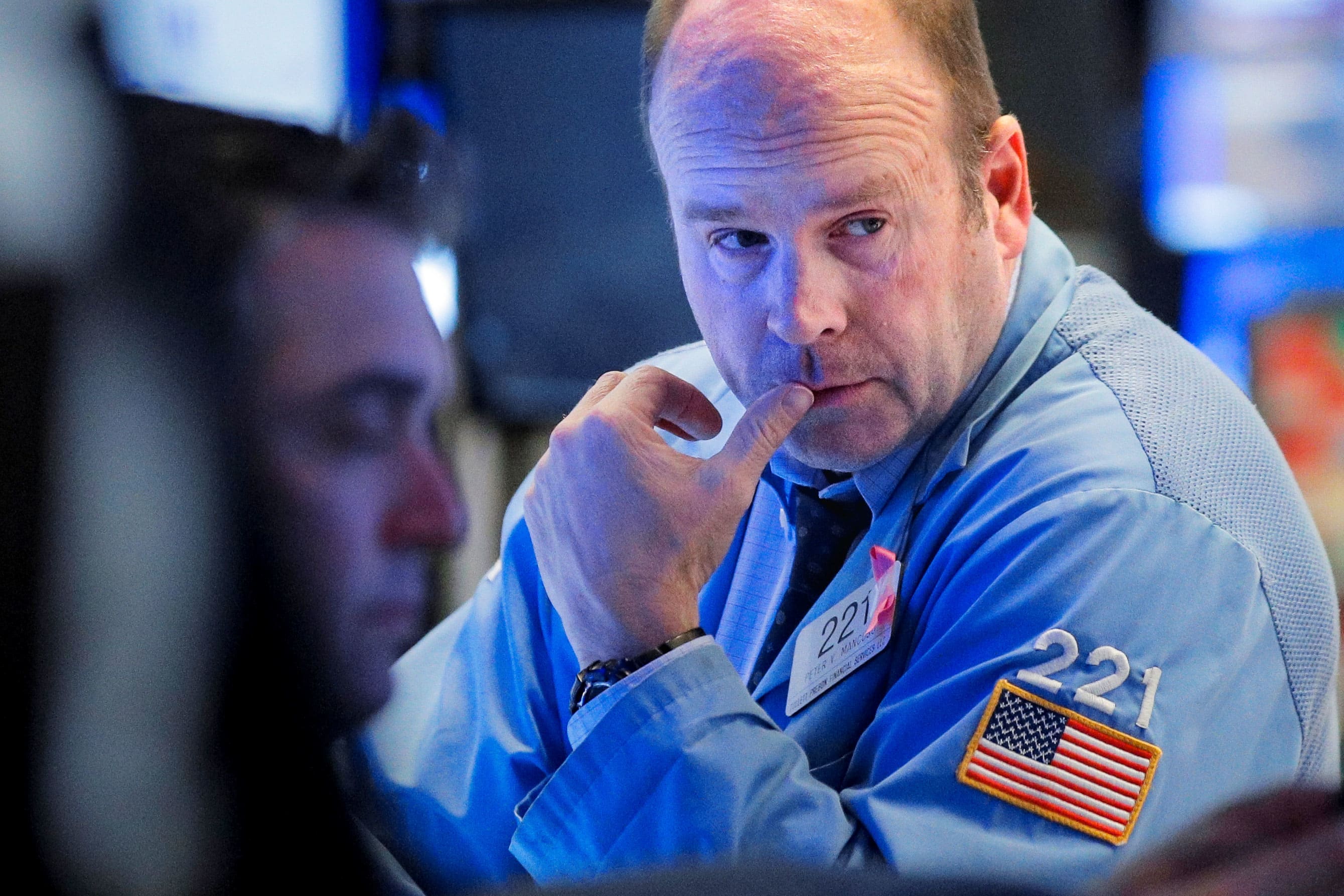Traders work on the floor at the New York Stock Exchange, January 14, 2020.
Brendan McDermid | Reuters
Investors braced for another turbulent week as stock futures tumbled on Sunday night as concerns around the coronavirus kept Wall Street under pressure.
Dow Jones Industrial Average futures dropped more than 400 points, indicating a loss of 449 points at Monday’s open. S&P 500 and Nasdaq 100 futures fell 1.6% and 1.7%, respectively.
The Dow, S&P 500 and Nasdaq Composite all fell more than 10% last week, their biggest weekly declines since October 2008.They also entered correction territory, down more than 10% from all-time highs notched earlier in February.
Those declines came after a sharp increase in coronavirus cases outside of China. The number of cases continued to increase over the weekend, including in the U.S.
The Japanese yen rose 0.5% to 107.54 per U.S. dollar, an early indication Sunday that the risk-off sentiment that sent equity markets tumbling remains after a weekend full of negative coronavirus-related news.
As of Sunday, more than 85,000 cases have been confirmed around the world along with more than 2,900 virus-related deaths. Australia, Thailand and the U.S. reported over the weekend their first coronavirus-related deaths. Rhode Island was the first U.S. state in the east coast to report a coronavirus case. The number of cases in England rose to 35 after 12 new cases were confirmed on Sunday. Cases in China also reported more than 500 new cases on Saturday.
“The outbreak of Covid-19 has certainly changed the near-term narrative,” said Chetan Ahya, global head of economics at Morgan Stanley, in a note to clients Sunday. “It is an untimely shock, considering that the starting point of global growth was weak, and the recovery was very nascent.”
Horrible China economic data
Wall Street got its first look over the weekend at the economic toll the virus has taken on China, the epicenter of the outbreak.
China’s official manufacturing PMI plunged to 35.7 in February, a record low, from 50 in January. A reading below 50 indicates contraction in a sector.
The plunge “shows the extent to which an outbreak can hit an economy,” said Ed Hyman, a widely followed economist on Wall Street and Evercore ISI chairman, in a note to clients. “All this is quite uncertain, and we may be overreacting. But we also don’t want to underreact.”
Gaming revenues in Macau also plunged nearly 88% last month.
Worries over the coronavirus’ impact on corporate profits and the global economy led investors to seek safer alternatives to stocks, pushing U.S. Treasury yields to all-time lows. The benchmark 10-year Treasury yield broke below 1.15% for the first time ever last week.
Subscribe to CNBC PRO for exclusive insights and analysis, and live business day programming from around the world.
